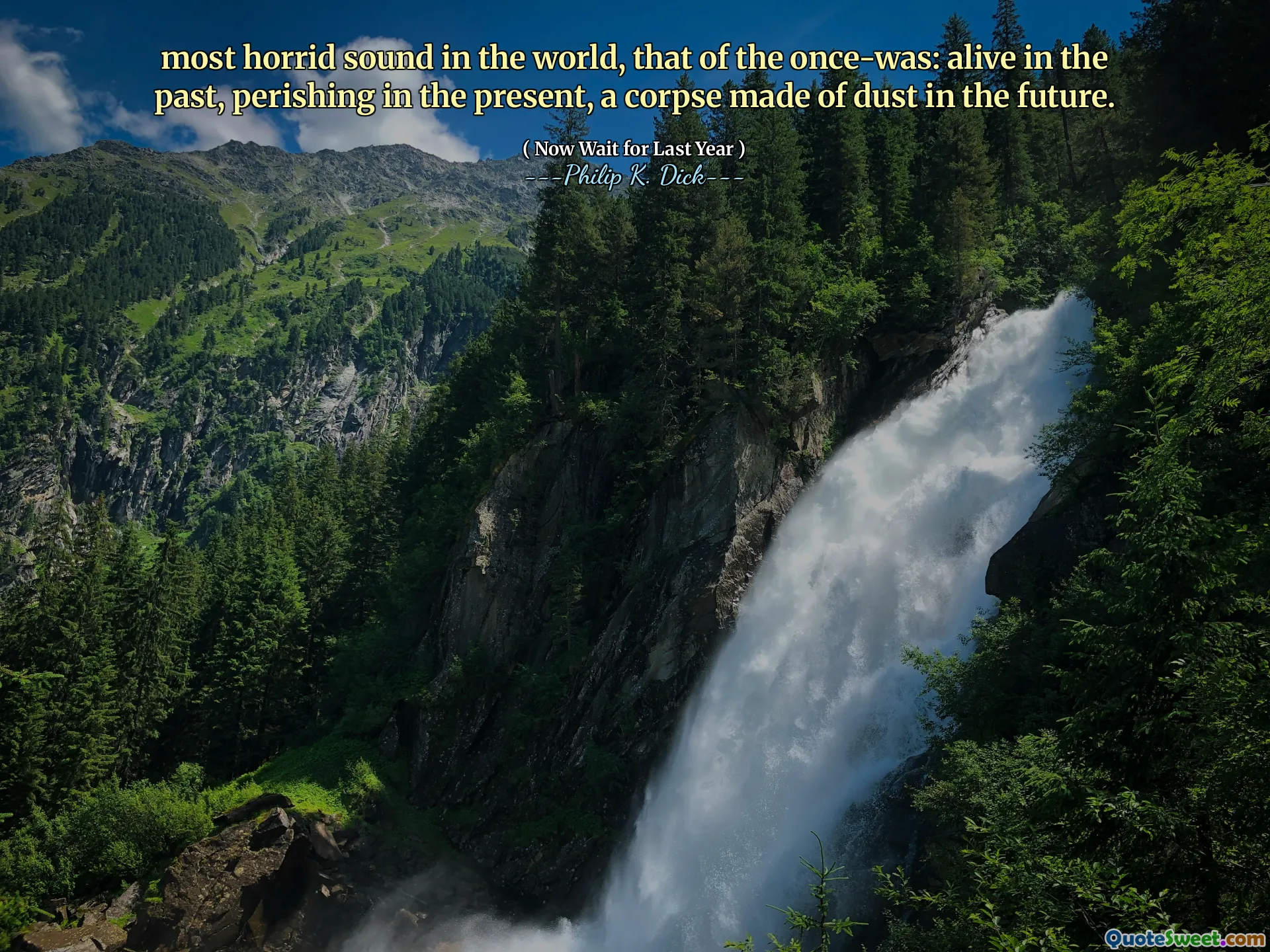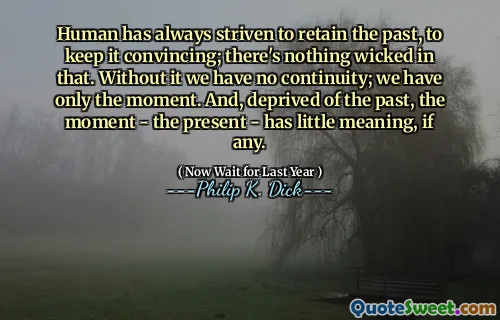
most horrid sound in the world, that of the once-was: alive in the past, perishing in the present, a corpse made of dust in the future.
In Philip K. Dick's "Now Wait for Last Year," the narrative explores the profound sadness and haunting nature of memories. The quote depicts a terrifying auditory experience that symbolizes the eternal struggle between the fleeting nature of life and the permanence of death. The juxtaposition of being alive in the past yet fading in the present illustrates how one’s existence can feel simultaneously vivid and decaying. This poignant reflection captures the essence of nostalgia and loss, emphasizing the inevitable passage of time.
The image of a "corpse made of dust" further reinforces the bleak reality of mortality, suggesting that all that remains of life are mere remnants. The horror of this sound is not just the loss itself, but the awareness of it happening. Dick's work often grapples with themes of identity and reality, and this quote encapsulates the struggle with understanding one's place in a world where the past is both a comfort and a torment. Ultimately, it serves as a reminder of the transitory nature of existence and the weight of memories we carry.











